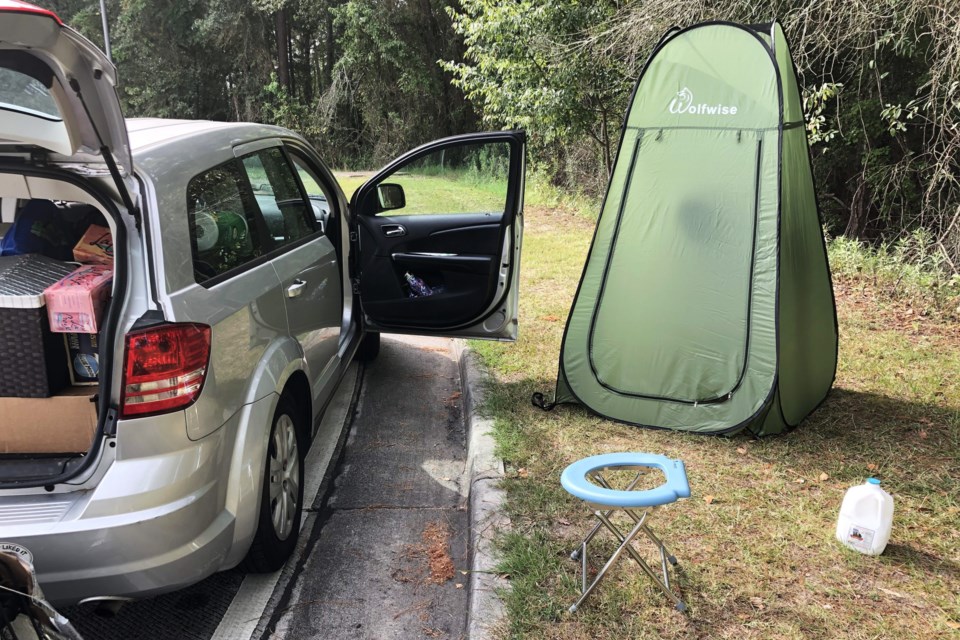BOYNTON BEACH, Fla. — People said we were crazy. We said we’d be careful.
Maybe so, my doctor-uncle warned, but it would only take one moment of carelessness to get infected — one time finding ourselves too close to unmasked people.
Others raised eyebrows in Zoom calls, silently judging our desire to spend a nonessential week at the beach in South Florida, the U.S. epicenter of the coronavirus pandemic.
Then I pointed out that we’d be
When it comes to deaths from COVID-19, Georgia is winning this awful contest, with a rate of 36 per 100,000 people, compared to 33 in Florida, during the vacation week I’d signed up for.
My family is incredibly privileged to be able to hunker down in a home with a backyard big enough for chickens, a vegetable garden and a berry patch. And in a world where so much is beyond our control, we remain determined to be the last ones to get sick from COVID-19.
So we’ve hardly left since March, working and studying from home, buying veggies at open-air markets and ordering meat and milk delivered. We’ve kept up with friends by using “outdoor voices” heard from a distance or through three layers of cotton. As rewards, we’ve indulged in an occasional carry-out meal or ice cream cone.
But our sanctuary had become stifling.
As Georgia’s sweltering summer deepened, with schools going online and the pandemic’s horizon stretching, our family was on edge. To summon the stamina required to endure this thing, we needed a change of scenery.
After weeks of comparing Georgia and Florida’s infection ratios, we decided to make the 9-hour drive to a friend’s mother’s apartment. It’s perched just one floor up, so we could avoid using an elevator, and has 270-degree ocean views. The beach outside is usually uncrowded, just steps away. No one had been staying there for weeks.
Boynton Beach is hardly remote, but our plan was to maintain isolation while reading, napping, preparing great meals and sticking our feet in the sand. We packed a huge cooler with provisions and got two more contraptions that proved essential to pandemic travel: a fold-out toilet seat and a pop-up changing tent, wide as a hula hoop and eight feet tall.
I wondered how the family’s shyer bladders would cope with putting on a roadside show. As it turned out, unfolding the seat and tent was easy, as was depositing the carefully sealed results in a nearby trash can.
Once we arrived, we didn’t use the car. We tried new recipes our kids had chosen, swam in the warm Atlantic, conquered a puzzle, binge-watched movies. As the ocean’s endlessly calming blues and greens washed off months of accumulated anxiety, we took mental notes, hoping to recall these feelings when the pandemic’s second wave crashes over us.
A Florida
As it turned out, we made no contact with other humans for an entire week. Aside from tax on two tanks of gas, we contributed nothing to the Florida economy, and Tropical Storm Isaias sent us packing a day early. But as we look back this winter on our Florida getaway, I suspect we’re going to remember it fondly — as essential to our mental health.
___
Virus Diary, an occasional feature, showcases the coronavirus pandemic through the eyes of Associated Press journalists around the world. Follow Atlanta-based AP editor Michael Warren on Twitter at http://twitter.com/mwarrenap
Michael Warren, The Associated Press



